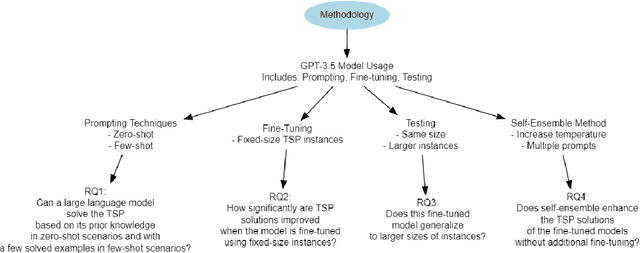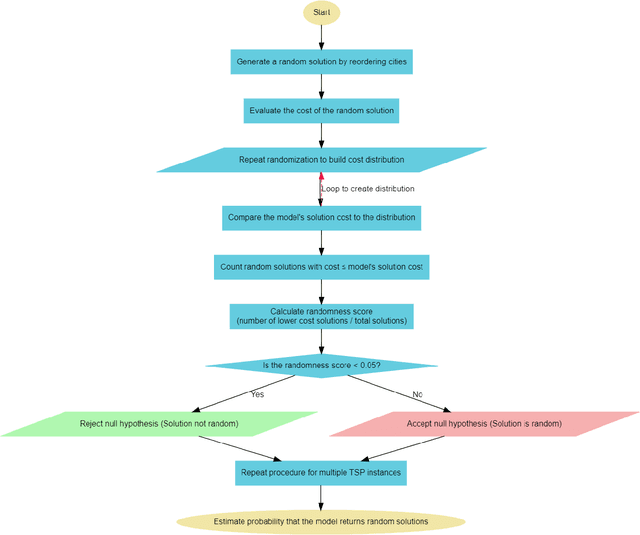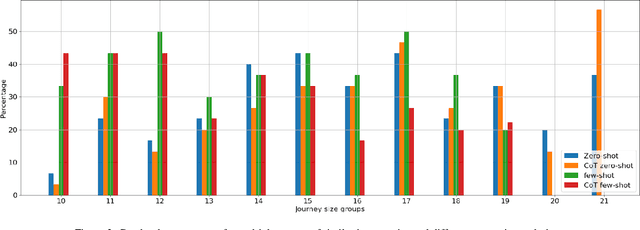Exploring Combinatorial Problem Solving with Large Language Models: A Case Study on the Travelling Salesman Problem Using GPT-3.5 Turbo
Paper and Code
May 03, 2024



Large Language Models (LLMs) are deep learning models designed to generate text based on textual input. Although researchers have been developing these models for more complex tasks such as code generation and general reasoning, few efforts have explored how LLMs can be applied to combinatorial problems. In this research, we investigate the potential of LLMs to solve the Travelling Salesman Problem (TSP). Utilizing GPT-3.5 Turbo, we conducted experiments employing various approaches, including zero-shot in-context learning, few-shot in-context learning, and chain-of-thoughts (CoT). Consequently, we fine-tuned GPT-3.5 Turbo to solve a specific problem size and tested it using a set of various instance sizes. The fine-tuned models demonstrated promising performance on problems identical in size to the training instances and generalized well to larger problems. Furthermore, to improve the performance of the fine-tuned model without incurring additional training costs, we adopted a self-ensemble approach to improve the quality of the solutions.
 Add to Chrome
Add to Chrome Add to Firefox
Add to Firefox Add to Edge
Add to Edge